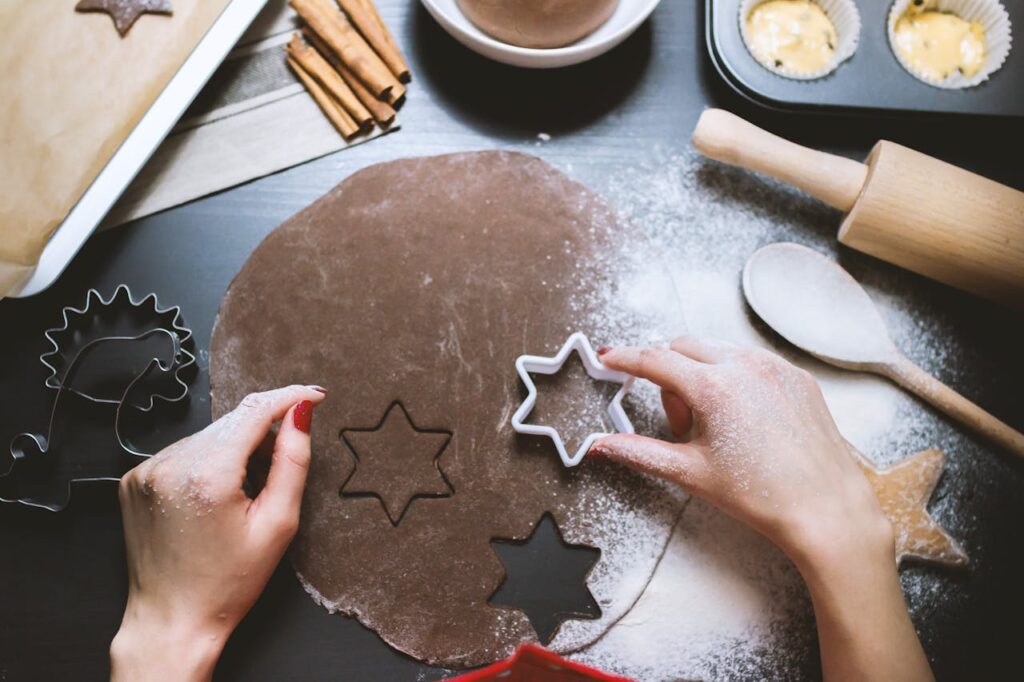Baking is both an art and a science, requiring precision, creativity, and the right tools. One of the most essential components of successful baking is high-quality bakeware. Whether you’re a novice baker or an experienced pastry chef, having the right bakeware can make a world of difference in your baking results. This comprehensive guide will walk you through the key aspects of choosing and using bakeware, helping you to elevate your baking game.
Why Quality Bakeware Matters
The importance of good bakeware cannot be overstated. Here are a few reasons why investing in quality bakeware is crucial:
- Even Heat Distribution: High-quality bakeware ensures even heat distribution, preventing undercooked or burnt spots and resulting in perfectly baked goods every time.
- Durability: Good bakeware is made from materials that can withstand high temperatures and repeated use without warping or degrading.
- Non-Stick Performance: Quality non-stick bakeware makes it easier to release baked goods and simplifies cleanup.
- Consistent Results: Using reliable bakeware helps you achieve consistent results, crucial for baking where precision matters.
Essential Bakeware Pieces
Every baker’s kitchen should be equipped with a few essential pieces of bakeware. Here are the must-haves:
- Baking Sheets and Cookie Sheets: These flat, rectangular pans are used for baking cookies, roasting vegetables, and more. Look for heavy-duty, warp-resistant sheets with a non-stick surface.
- Cake Pans: Available in various shapes and sizes, cake pans are essential for baking layered cakes, cheesecakes, and more. Round, square, and rectangular pans are the most common.
- Muffin Tins: Used for baking muffins and cupcakes, muffin tins come in standard and mini sizes. Non-stick coatings or silicone options make for easy removal and cleanup.
- Loaf Pans: Perfect for baking bread, pound cakes, and meatloaf. Opt for sturdy, non-stick loaf pans for the best results.
- Pie Dishes: Ideal for pies and tarts, pie dishes come in glass, ceramic, and metal varieties. Glass and ceramic dishes are particularly good for even baking and attractive presentation.
- Bundt Pans: These pans have a distinctive ring shape and intricate designs, perfect for bundt cakes and other specialty desserts.
- Cooling Racks: Essential for allowing baked goods to cool evenly and preventing sogginess. Look for sturdy, rust-resistant racks.
Materials Matter
The material of your bakeware can significantly impact your baking results. Here are the most common materials and their benefits:
- Aluminum: Known for excellent heat conductivity, aluminum bakeware ensures even baking. However, it can react with acidic ingredients, so look for anodized aluminum to prevent this.
- Stainless Steel: Durable and non-reactive, stainless steel is great for a variety of baking tasks. It may not conduct heat as well as aluminum, so preheating your oven is essential.
- Glass: Glass bakeware heats evenly and allows you to see the progress of your baking. It’s ideal for pies and casseroles but can be heavy and prone to breaking.
- Ceramic: Ceramic bakeware is non-reactive, retains heat well, and is perfect for even baking. It’s also attractive for serving, but like glass, it can be heavy and fragile.
- Silicone: Flexible and non-stick, silicone bakeware makes it easy to remove baked goods. However, it doesn’t brown as well as metal and can be challenging to handle due to its flexibility.
- Non-Stick Coatings: Non-stick bakeware simplifies the release of baked goods and cleanup. However, avoid using metal utensils that can scratch the coating.
Choosing the Right Bakeware for Your Needs
Selecting the right bakeware depends on what you enjoy baking most frequently. Here are a few tips to help you choose:
- Cookies and Biscuits: Invest in a few high-quality baking sheets. Look for ones with a lip to prevent spills and ensure even baking.
- Cakes and Brownies: Round, square, and rectangular cake pans are essential. Consider springform pans for cheesecakes and delicate cakes that need gentle handling.
- Bread and Loaves: Sturdy loaf pans are a must. Consider different sizes for versatility.
- Pies and Tarts: Glass or ceramic pie dishes are ideal. Look for deep-dish options for versatility.
- Muffins and Cupcakes: Non-stick or silicone muffin tins are best. A standard 12-cup tin is versatile for most recipes.
- Specialty Baking: If you enjoy making bundt cakes or other specialty desserts, invest in a good bundt pan and other specialty molds.
Caring for Your Bakeware
Proper care and maintenance of your bakeware will ensure it lasts longer and performs better. Here are some tips:
- Follow Manufacturer’s Instructions: Always refer to the care instructions provided by the manufacturer.
- Avoid Abrasive Cleaners: Use mild detergent and a soft sponge to clean your bakeware. Avoid abrasive cleaners and scouring pads that can damage surfaces.
- Hand Wash When Possible: While some bakeware is dishwasher safe, hand washing is often gentler and can prolong the life of your pieces.
- Prevent Warping: Avoid drastic temperature changes that can cause metal bakeware to warp. Let pans cool before washing them.
- Store Properly: Nest pans carefully to avoid scratching and damage. Consider using protective sheets or towels between nested pans.
Tips for Successful Baking
In addition to having the right bakeware, following a few key baking tips can help ensure success in the kitchen:
- Preheat Your Oven: Always preheat your oven to the correct temperature before baking.
- Measure Ingredients Accurately: Baking is a science, and precise measurements are crucial. Use a kitchen scale for the best results.
- Use Room Temperature Ingredients: Many recipes call for room temperature ingredients, which mix more easily and evenly.
- Don’t Overmix: Overmixing can lead to tough, dense baked goods. Mix just until ingredients are combined.
- Rotate Pans: If your oven has hot spots, rotate pans halfway through baking to ensure even cooking.
- Cool Properly: Allow baked goods to cool in the pan for a few minutes before transferring to a cooling rack. This helps prevent sticking and maintains structure.
Conclusion
Investing in high-quality bakeware is a game-changer for anyone who loves to bake. With the right tools, you’ll find baking easier, more enjoyable, and more successful. From baking sheets to bundt pans, each piece of bakeware plays a crucial role in your kitchen. By choosing the right materials and caring for your bakeware properly, you can enjoy years of delicious baked goods. Upgrade your bakeware collection today and take your baking to new heights. Happy baking!

